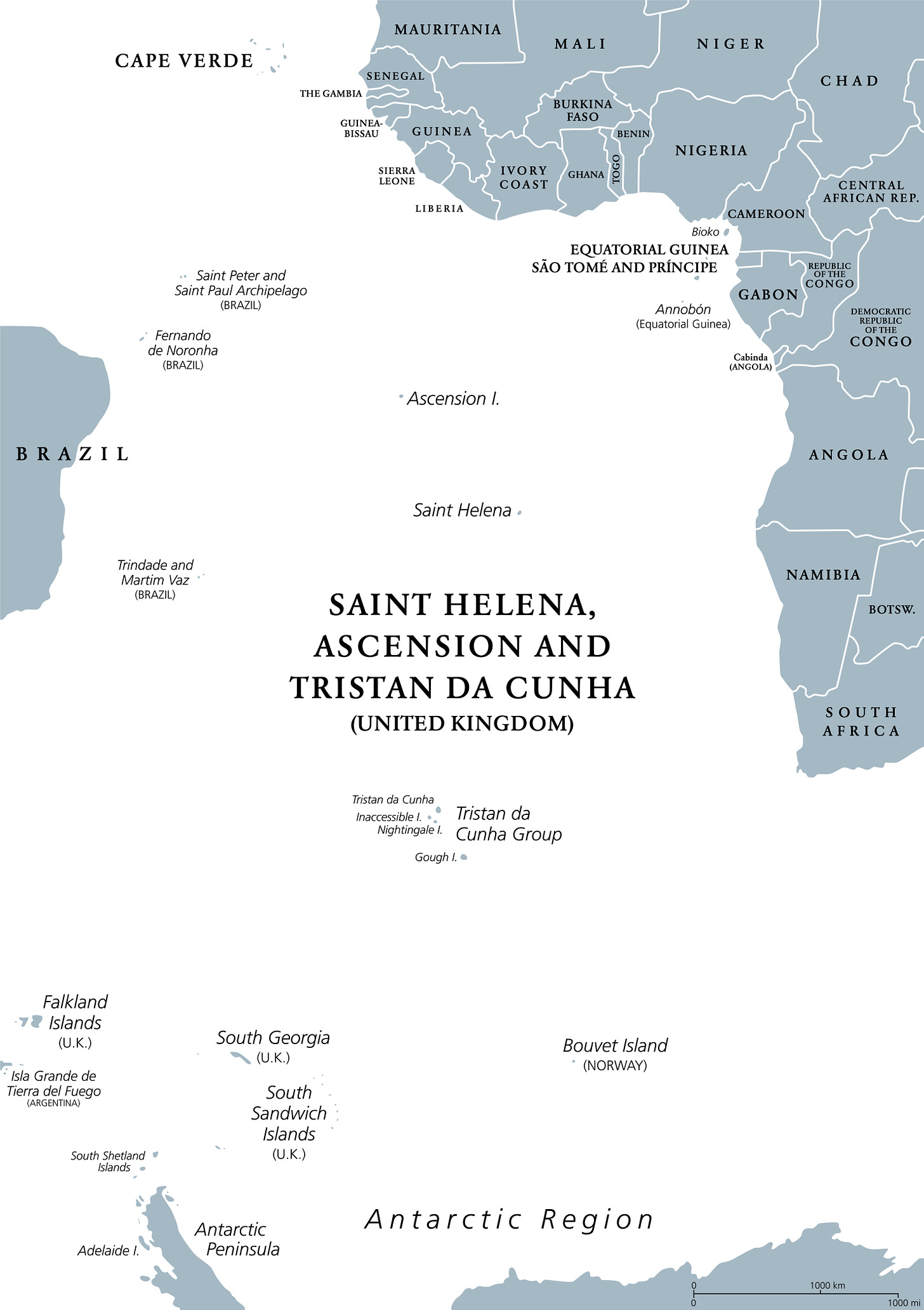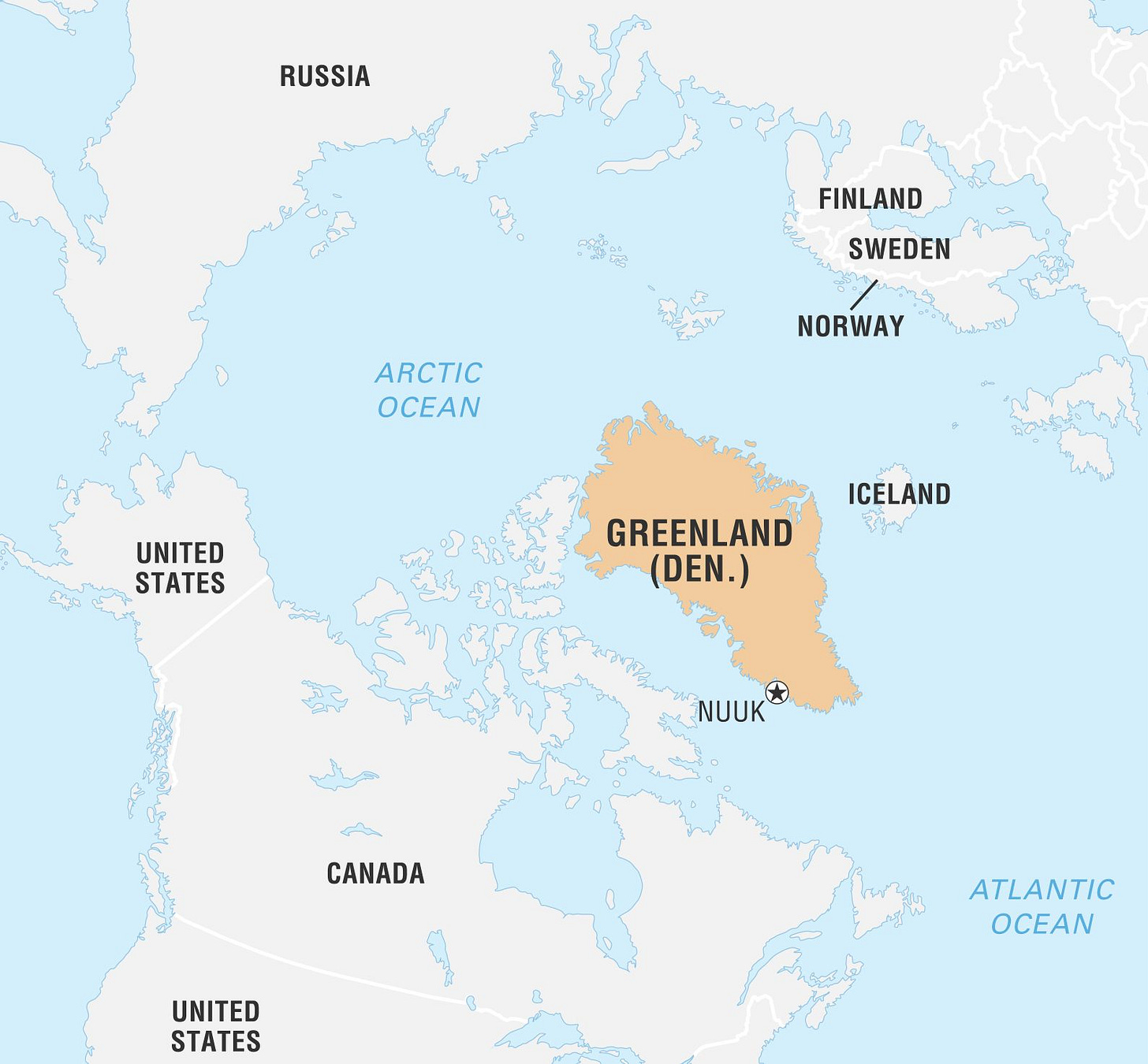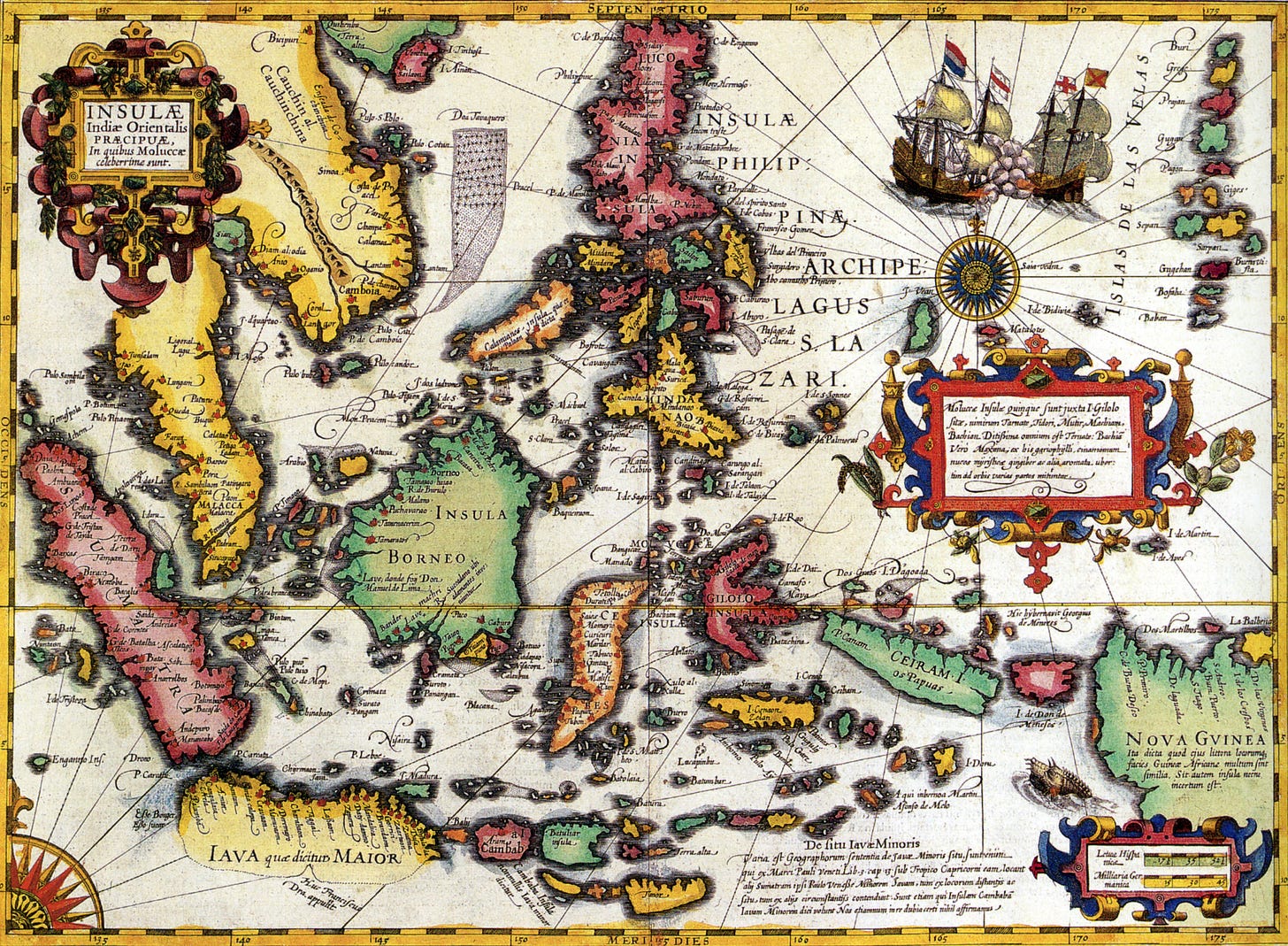Many ask when the war in Ukraine will end as if events there are contained and can be neatly concluded there. Something larger and more system is in motion. The Superpowers are jockeying for control over islands. It is surprising that tiny little specks of ground in the midst of huge oceans should matter anymore. But they do. If the world is like a Monopoly Board, Russia, China, and the US are all staking claims to tiny islands that had previously been valued at practically nothing. From Snake Island to The Spice Islands, we seem to be falling into a cold war in hot places. This article continues from Island (S)hopping: Part One.
Consider Africa. China has been careful to cultivate islands on the West coast. São Tomé and Príncipe off the West coast of Africa and Cape Verde, are increasingly under Beijing’s influence. Washington seems to have only just realized that China is planning to build a military and naval base at Bata in Equatorial Guinea. This means being able to stage the Chinese Navy from the other side of the Atlantic.
The Eastern side of Africa also has islands that both Beijing and Russia have sidled up to. The Russians seem to be heavily present on the island of Madagascar but also in Mozambique and on the island of Mauritius, although it’s via President Putin’s private army, the so-called Wagner Group. Russia denies the existence of Wagner. The Comoros Islands have also attracted China’s geopolitical attention, not because of their long history of producing vanilla but because substantial new oil fields have been found there.
For a better understanding of China’s maritime strategy see The Carnegie Foundation’s interactive map here. Notice Socotra, the strange and mystical island owned by Yemen where the rare Dragon’s Blood trees actually seem to bleed. It has been called the Galapagos of the Middle East. UNESCO says “Nearly one-third of its 825 plants and 90% of its reptile species are considered unique to the island.” It is the largest island in the Middle East and sits at the heart of the strategic global shipping lanes between the Arabian Peninsula and Africa. Someone is building a massive airfield and military base there, but no one is quite sure who it is. Some reports say it’s Saudi. Others say Saudi and the UAE. But, a large reason for developing it as a military base is to act as a counterweight to China in the region.
China has increasingly been reaching into the Caribbean as well. For a deeper dive into the Caribbean see the Wilson Center’s report, “China’s Advance in the Caribbean.” Both Russia and China are very involved with Cuba. Notice that Alexander Dugin. President Putin’s close advisor, sometimes known as “Putin’s Brain”, has called for Russia to arm American adversaries such as Cuba.
Notice that almost none of these islands support or recognize the island of Taiwan. Nations that do deals with China tend to abstain or vote with Russia and China in the UN.
Then there is the Arctic. Suffice it to say that China and Russia are aggressively angling for greater control over Arctic territory. China’s Arctic policy states that China is a “Near Arctic State”. China and Russia alike have established a presence on Svalbard, the tiny Norwegian island where most satellites and the International Space Station connect to the earth. Russia’s principal military base in the Arctic is on an island chain called Franz Josef Land.
China has stretched its attention to the largest island in the Arctic, Greenland. It has aimed to establish a military foothold there since 2018. Slowly, slowly China is succeeding. Greenland has been moving away from Denmark’s control and is nearing the possibility of full independence. China’s cash flows are essential to the swifter establishment of statehood there. Greenland is awash with valuable minerals, especially the rare earth minerals that are essential for modern electronics, electric vehicle batteries, and wind turbines. It’s estimated that there may be as much as 70% of the world’s supply found there plus some 13% of the world’s undiscovered gas. So far, the local ruling party in Greenland, Inuit Ataqatigiit (IA), which came to power on an anti-mining stance, has managed to block both China and America’s efforts to extract there.
The US and NATO have quietly opposed China’s efforts to secure a foothold in Greenland because of the location’s crucial role in America’s defense strategy. America’s Thule Airbase is America’s Northernmost military base and the southeast end of the island is the base from which NATO monitors the Russian Navy in the GIUK Gap (Greenland to Iceland to the UK). Thule is where America’s 21st Space Wing the Russian Navy and the Early Warning System for inbound ICBMs (Intercontinental Ballistic Missiles). The US tried to build a nuclear projection capability on Greenland called Camp Century back in 1959, but the ice kept moving, making it impossible to complete the construction. They tried to create a giant 52k square mile “whack-a-mole” by moving some 600 nuclear missiles randomly in trains between 2100 silos so that the Soviets would not know where the missiles were at any given time. But the train tracks and tunnel walls kept breaking as the ice shifted. There seems to be an open question about whether any nuclear material or weapons were left behind by the US and which global warming may expose in future. This site was powered by the world’s first portable nuclear reactor and may also have a possible “Broken Arrow” or lost nuclear weapon from a B-52 Bomber crash there in 1968). Note that this is also the birthplace of the modern Climate Change movement due to the discovery that the Camp Century ice cores from a depth of more than 1.4k. They revealed that Greenland was not iced over in the past and led to the conclusion that global warming is caused by human activity and not part of a natural cycle.
That same global warming is also making it easier for both China and Russia to cross the famous Northwest Passage. The Norwegian Edward Toll LNG carrier cut some 3000 miles off the journey from China to Europe with its record-breaking journey in 2020 from South Korea to France via Russia’s Yamal LNG Terminal (one of the world’s Fossil Extraction Megaprojects) without the assistance of an icebreaker. President Trump tried to shortcut the complex problem using his simple commercial logic. He tried to buy Greenland. The Prime Minister refused bluntly and outright.
The Danes have another island chain that the New York Times calls “a new and unlikely battleground in the technological Cold War between the United States and China”, the Faroe Islands just North of Britain. China offered a trade deal if the Faroese adopted Hauwei’s 5G telecoms system back in 2019. China also wants to punish Norway for having awarded a Nobel Prize to the Chinese human rights activist, Liu Xiaobo while he was imprisoned and incommunicado. So, they have started buying more fish from the Faroes instead. In exchange, they want more presence.
Islands have always played a central role in geopolitics ever since the discovery of The Spice Islands in 1612. Their treasure trove of nutmeg, mace, and cloves drove Europe into a land grab and onto a colonial path. Today, the maritime strategy of both Russia and China is driven by these very same Spice Islands. Why? They make up the Malacca Straights, an archipelago that covers 65k square kilometers. Some 80% of world trade has to pass through these pirate-infested waters. This throughway is how China gets 70% of its oil. In 2003 China’s President Hu Jintao called it “The Malacca Dilemma”. In other words, it’s a chokepoint for the world economy but especially for China. It explains all these efforts to align with Russia given its endless energy and alternative pathway to Europe. Things are getting spicy again today. It explains why China, with Russia’s help, is island hopping and island shopping.
Modern geopolitics is now firmly rooted on remote islands all over the world.
Subscribe to stay informed on new developments as they bubble up.









Fascinating - you managed to expand my knowledge of obscure islands of the world by factors and highlight the geo-political shenanigans the three powers are playing all in one essay. Thank you
Great article highlighting that "under the radar" the great game is still being played. I note that according to Peter Zeihan, China does not have a Blue Water navy of any consequence. So is this China playing a long game; if Zeihan is correct he reckons China doesn't have more than a decade or so before it craters and that seems too short to build such a navy.
One last thing regarding the comment on Greenland ice cores "They revealed that Greenland was not iced over in the past and led to the conclusion that global warming is caused by human activity and not part of a natural cycle." I read the scientific paper and found it too complicated for even my BSc Chemistry brain. I also don't understand the relevance of the comment above given most who are aware of plate tectonics know Greenland was further south and the planet was a lot warmer in the past.